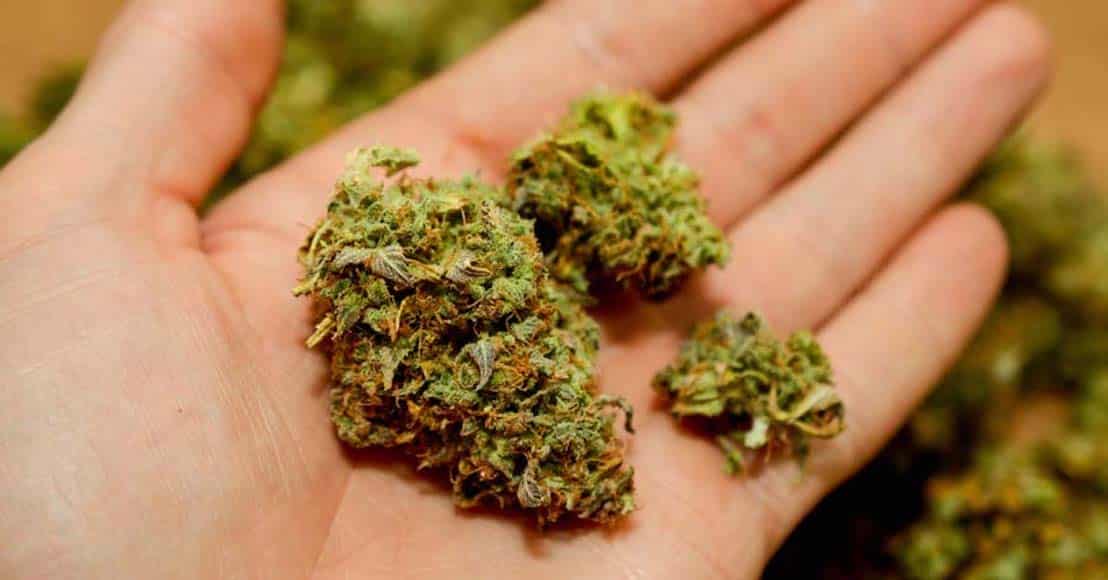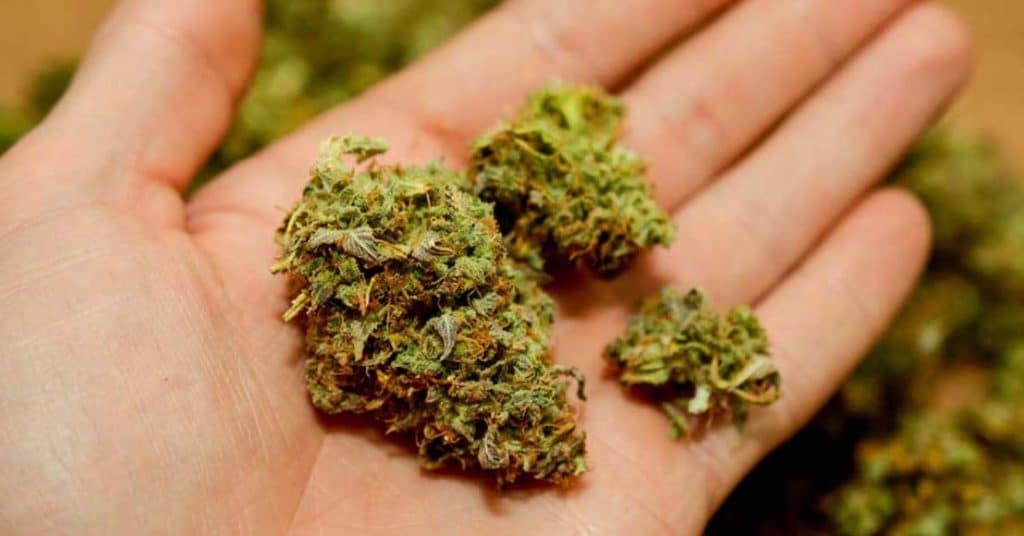
Delta-8 THC: Everything You Need to Know
Table of contents
You’ve likely heard of delta-8 THC with all the media buzz going around about it. But what is delta-8 THC? And should you be concerned about your consumption of it?
What is Delta-8 THC?
Delta-8 THC (or delta-8-tetrahydrocannabinol) is a naturally-occurring psychoactive substance found in the Cannabis sativa plant. Marijuana and hemp are two varieties of this plant. Delta-8 THC is just one of more than 100 cannabinoids naturally found in the cannabis plant, and it’s only found in trace amounts. As a result, manufacturers typically produce concentrated amounts of it from hemp-derived cannabidiol (CBD).1
People can purchase delta-8 THC products at convenience stores, gas stations, vape shops, and online. Typically, shops sell them as oils, edibles, joints, edibles, gummies, candies, vaping pens, and more.
Related post: Do THC Detox Products Work?
What’s the difference between Delta-8 THC and marijuana?
Delta-9-tetrahydrocannabinol (Delta-9 THC) is the main psychoactive chemical found in marijuana. Delta-8 THC and delta-9 THC are chemically similar, so it’s safe to say they are cousins. Chemists say the only difference between the two molecules is the location of a double bond between two carbons.3
Both of these psychoactive substances are forms of THC, and they produce a euphoric “high.” However, delta-8 THC is less potent.2 That’s why it’s sometimes referred to as “diet weed” or “marijuana-lite.”
Is it safe to use?
Currently, there is no regulatory oversight for delta-8 production, and most products sold as delta-8 THC are not pure. Although they typically contain a high percentage of delta-8 and small amounts of delta-9 and other cannabinoids, they also contain leftover reaction by-products from the manufacturing process. Researchers don’t know anything about the long-term health effects of these by-products, yet people commonly consume them with delta-8 products.3
Not surprisingly, some states are beginning to crack down on the sale of delta-8 THC products. Although they are currently legal in many places, chemists and researchers warn consumers about the potential unknown risks of the unidentified compounds found in products sold as delta-8 THC.
What are the risks?
As we mentioned earlier, the risks of using delta-8 products are largely unknown due to a lack of research. However, these are the primary concerns with using delta-8 products.
These products lack FDA evaluation and approval.
Current delta-8 products have not been evaluated or approved by the FDA. That means they are not proven to be safe or effective, which puts consumers at risk. Depending on the manufacturer, delta-8 THC products may contain any number of reaction by-products, which may have harmful short-term and long-term health effects.
Misleading marketing puts consumers in danger.
The marketing used to sell delta-8 products may be misleading or dangerous to your health. For example, many manufacturers label them as “hemp products,” which could be confusing for consumers to determine whether they produce psychoactive effects or not. Additionally, some are also marketing for medical or therapeutic uses, which the FDA has not proven or backed. As a result, some people may rely on delta-8 products to treat ailments instead of using evidence-based and FDA-approved methods that are likely to be much more effective.
There are several well-documented reports of adverse effects.
Additionally, the FDA has received reports of adverse events from consumers and law enforcement regarding the consumption of delta-8 THC products. According to these reports, of the 22 patients, 19 experienced adverse side effects after consuming delta-8 food products, including vomiting, hallucinations, difficulty standing, and loss of consciousness. Fourteen of the individuals received treatment at a hospital or emergency room following delta-8 ingestion.
Further, poison control centers reported 661 exposure cases of delta-8 products between January 2018 and July 31, 2021. All but one of them occurred between January and July of 2021. Of those exposure cases:1
- 41% involved unintentional exposure to delta-8 THC, and 77% of these accidental exposures affected pediatric patients less than 18 years of age
- 39% involved pediatric patients less than 18 years of age
- 18% required hospitalizations, including children who needed intensive care unit (ICU) admission following exposure to these products
What are common Delta-8 THC side effects?
Much like delta-9 THC, delta-8 produces similar side effects, but they are less potent. They usually include:4
- Paranoia
- Anxiety
- Drowsiness
- Fuzzy feeling/mild euphoria
- Confusion
- Slow or fast heart rate
- Numbness
- Low blood pressure
This is not a comprehensive list of delta-8 side effects, but these are just some of the side effects that consumers have reported.
Is Delta-8 THC legal?
Due to a loophole in the 2018 Farm Bill, delta-8 is unregulated at the federal level.5 As a result, these products are legal in many states. As long as they are derived from hemp and don’t contain more than 0.3% of delta-9 THC on a dry-weight basis, many lawyers and hemp industry officials say they are legal under federal law.
However, as of October 15, 2021, delta-8 THC is not legal in Texas. The Texas Department of State Health Services stated delta-8 is a Schedule I drug and, therefore, is illegal.6 Several other states have also decided to make delta-8 illegal based on a lack of research on the potential effects, including:
- Alaska
- Arizona
- Arkansas
- Colorado
- Delaware
- Idaho
- Iowa
- Rhode Island
- Vermont
- Utah
Other states have issued public safety warnings about the use of delta-8 THC products.
Is Delta-8 THC addictive?
Delta-8 has the potential to be psychologically and physically addictive due to the euphoria it produces. Although many sources say it is not addictive, it may affect every person differently. For example, someone with a history of substance abuse or who uses delta-8 frequently in large quantities may be more likely to become addicted to it.
Related post: How Long Does Marijuana Stay In Your System?
Struggling with marijuana addiction? Briarwood can help
If you or a loved one is struggling with marijuana addiction, the caring addiction treatment professionals at Briarwood Detox Center are here to help. We provide individualized drug and alcohol detox programs with 24/7 care and support. Our supportive staff will also offer H&I meetings, music and art activities to enhance healing, and individual and group counseling to help you recover and start a new life.
Start your new life today by calling (512) 262-4426 or contact us online for more information
References:
- https://www.fda.gov/consumers/consumer-updates/5-things-know-about-delta-8-tetrahydrocannabinol-delta-8-thc
- https://www.cancer.gov/publications/dictionaries/cancer-drug/def/delta-8-tetrahydrocannabinol
- https://cen.acs.org/biological-chemistry/natural-products/Delta-8-THC-craze-concerns/99/i31
- https://www.nbcnews.com/health/health-news/delta-8-thc-legal-many-states-some-want-ban-it-n1272270
- https://www.texastribune.org/2021/10/25/delta-8-texas-hemp-judge-ruling/
Break Free From Your Addiction Today
(in 3 easy, confidential steps)
Verify your insurance
Complete our fast, free, and easy verification process over the phone to determine the extent of your insurance coverage.
Make an informed decision
We will provide personalized placement recommendations based on your insurance, treatment needs, financial situation, and schedule.
Contact us
Call (888) 857-0557 or fill out our online form for a free and confidential personal consultation with an admissions specialist.











